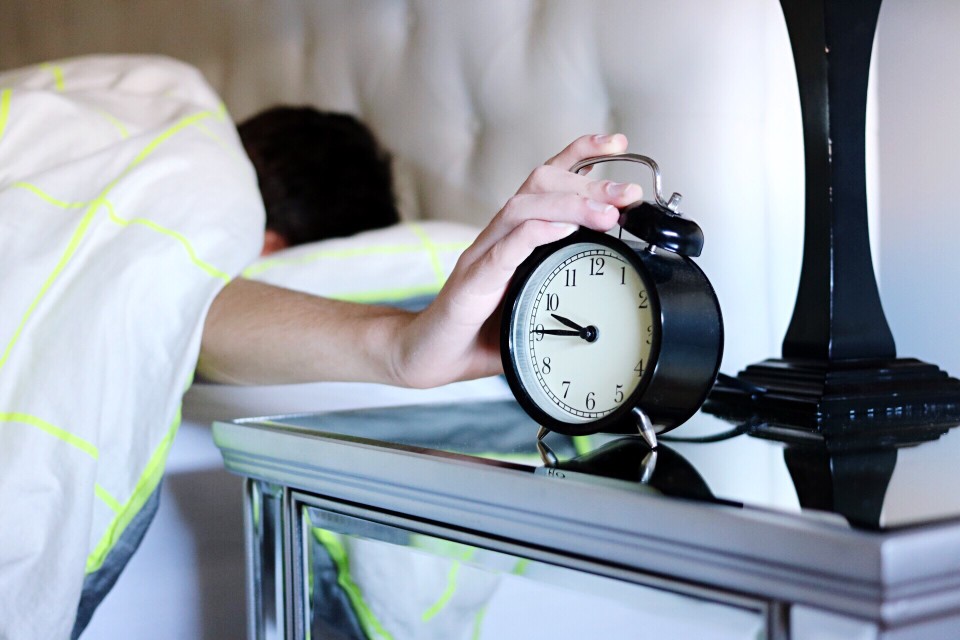 Teenagers may experience difficulty falling or staying asleep, or insomnia, for many reasons. Disrupted sleep can negatively impact your teen’s mental and physical health.
Teenagers may experience difficulty falling or staying asleep, or insomnia, for many reasons. Disrupted sleep can negatively impact your teen’s mental and physical health.
Keep a Regular Sleep Schedule
It may feel tempting for your teen to stay up late or sleep in, but it is important for them to keep a regular sleep schedule. This can help them get into a consistent routine, which may improve their sleep.
Getting morning sunlight within an hour of waking up impacts your teen’s internal clock, which can help them fall asleep earlier and maintain their sleep schedule.
This is especially important for adolescents because melatonin, or the hormone that helps the body know it’s time to sleep, is released later at night in them compared to children and adults.
Limit Screen Time
If possible, teens should not use television, gaming systems, computers, phones, and other gadgets in their bedrooms or while winding down for bed.
The noise and screen light can be overly stimulating and keep your teen up at night. This can reduce the amount of time they are able to sleep, as well as delay the release of melatonin.
Ideally, the bedroom should be kept quiet, dark, cool, and comfortable to encourage sleep.
Take Time Each Night to Wind Down
Spending a little time relaxing before bed may help improve sleep. Encourage your teenager to develop quiet sleep rituals to do before going to bed. These might include reading, listening to relaxing music, or taking a warm bath or shower.
Homework and anything else distracting should be put away. This wind-down time should feel like a noticeable shift that helps your teen mentally prepare for sleep. This may make it easier for them to fall asleep at the start of the night.
Be Mindful of Sleep-Disrupting Behaviors
Exercise is a great way to stay healthy, but it should be avoided close to bedtime. Otherwise, it may make your teenager too alert to drift off to sleep.
Likewise, late-night eating can disrupt sleep and may cause heartburn, which can lead to discomfort in the chest and throat. Dinner or snacks should be eaten around the same time each day and preferably hours before going to sleep.
Caffeine, nicotine, and alcohol are all associated with insomnia and frequent wakings that interrupt sleep. Chocolate, soda, tea, coffee, and energy drinks may all contain caffeine, a stimulant that increases brain activity. Nicotine may be found in tobacco products, including smokeless ones.
Make Sleep a Priority
One of the most important things you can do is recognize how important sleep is for your teen’s health. Lack of sleep can impact their emotional well-being and their overall quality of life. They are also more likely to get into car accidents if they aren’t sleeping well.
It’s important to note that certain sleep disorders may appear during adolescence. Examples include sleep apnea, or when breathing is interrupted briefly during sleep, and narcolepsy, which describes extreme daytime sleepiness and sudden sleep attacks.
If your teen is having difficulty sleeping, reach out to their healthcare provider.
Excerpted from “5 Simple Tips to Improve Teen Sleep Habits” in Verywell Health. Read the full article online.
Source: Verywell Health| 5 Simple Tips to Improve Teen Sleep Habits, https://www.verywellhealth.com/simple-tips-to-improve-teen-sleeping-3014994 | Ⓒ 2023 Dotdash Media, Inc. Last revised March 2022. Retrieved January 2023.
Do you need someone to talk to? To schedule an evaluation or to get advice about your child’s or teen’s challenges, call or email a CHC Care Coordinator at 650.688.3625 or careteam@stage.chconline.org CHC teletherapy services are available now.





